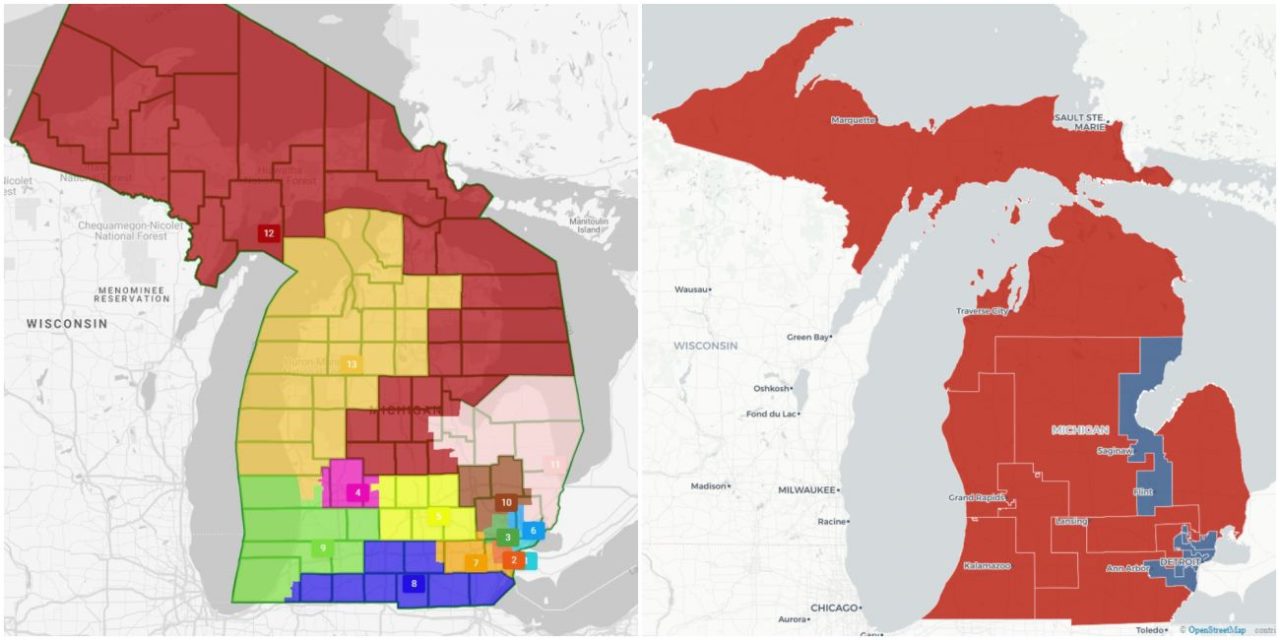By Mike Wilkinson
In Partnership With Bridge Michigan
Michigan’s congressional delegation could face sweeping changes in 2022 that have nothing to do with shifting political winds.
The first draft maps designed by a nonpartisan citizens redistricting commission appear to pit seven of Michigan’s 14 incumbents against one another, which could force them to square off in primaries, move or run in districts where they don’t live.
The drafts also create two districts that have no incumbents — one in the counties around Lansing and another in the northwest counties of the Lower Peninsula.
Michigan is losing one congressional seat due to stagnant population, declining to 13 districts — and the tentative maps leave the state with just one district, centered in Detroit, with a majority-minority population.
Since the passage of the Voting Rights Act in 1965, which required the preservation of such districts, Michigan has had at least two majority-minority districts.
Like most states, Michigan’s old system allowed the party in charge in the Legislature to draw districts every 10 years after the release of U.S. Census Bureau population counts.
But Michigan voters agreed in 2018 to change the Michigan Constitution to create a nonpartisan commission to draw the districts. The commission is a panel of four Democrats, four Republicans and five independents.
It hopes to have final maps by Dec. 30.
Among the takeaways:
Minority loss: Currently, Reps. Brenda Lawrence, D-Southfield, who is African American, and Rashida Tlaib, D-Detroit, who is Arab American, represent the 14th and 13th districts, each of which is majority-minority.
But under the plan first drafted on Thursday, Tlaib would be the only one in a majority-minority district, with over 63 percent of the population either Black, Hispanic, Asian or another minority.
For the rest of the story, go to BridgeDetroit’s website.





